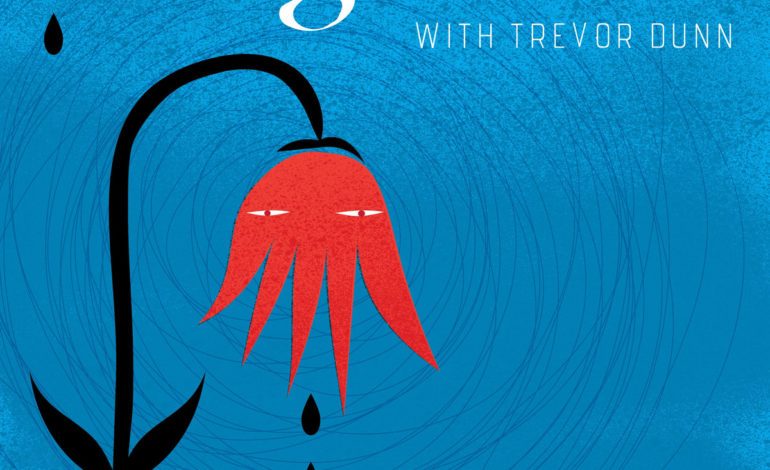

Dark and full-bodied in sound
There is a fine line between hard and soft rock. One chord struck hard enough can give the illusion of an aggressive rock song, but if strummed lightly, it becomes a quiet interlude of a soft rock album. For years, rock artists have morphed their talents between acoustic and electric guitar playing, but it’s the way they execute them which makes their songs worth listening to.
Roger “Buzz” Osborne” (known as King Buzzo) found time apart from his band the Melvins to release a new solo album with Mr. Bungle bassist, Trevor Dunn. Both musicians also play together in the bands Fantômas and Melvins Lite (an alternative lineup of the Melvins) making this album their newest collaboration. Gift of Sacrifice is a folk-strummed odyssey of emotion and strain–a much different vibe for both of them. With heavy undertones and a dramatically polished finish, this album has a hearty sound with loads of experimentation.
Recorded earlier this year, Gift of Sacrifice was meant to be released in May, where Osborne mentioned in Rolling Stone Magazine, “Once we take the stage, I guarantee we’ll kick the crap out of this album.” Though the COVID-19 pandemic stood in their way of performing this LP live. Nonetheless, the duo released their album in mid-August.
To lure people in, “Mental Vomit” is the 40-second instrumental that gently lays music as a sonic title sequence to this album. Following it is “Housing, Luxury, Energy,” an omniscient track with haunted lyrics referring to a darker time. It quickly switches in the pre-chorus to a heavy beat with Osborne’s stressed guitar strumming and Dunn’s bass melodies. This song is raw and hearty, almost industrial in its style and manner. With a similar sound, “I’m Glad I Could Help Out” is interwoven with metal-style vocals that perceive aggression. Osborne’s timely strumming adds a rounded sound to compensate, though this song is a new fusion for both Osborne and Dunn.
“Delayed Clarity” is arguably this album’s most impressive song, though this album is littered with gems. A lengthy guitar introduction leads to hollowed lyrics of despair, building suspense as each second passes. Dunn’s variance in bass strumming–blown, plucked, tapped–keep the song moving without masking Osborne’s rattled and strained guitar. Another gem named “Science in Modern America” is more ghoulish, tinkering with the sounds of the heartfelt and refrained. The acoustic is progressive and gnaws at people’s ears. Sonically, it is very experimental. Though with Dunn’s lowkey momentum, this song can transcend further than many other tracks.
Placed in-between these two tracks is “Junkie Jesus,” a strained interlude of suspense and intrigue. In similar style is the final track, “Acoustic Junkie,” which includes more of that spine-tingling strumming. It’s common to judge an instrumental final track, though once people have gone through the entire album, the stars seem to align somehow.
“Bird Animal” has a ’70s style to it, minus the flare. Almost with a classic framed style of playing, this song seems a bit giddier, if one will. The brain-melting distortion of a guitarist like King Buzzo isn’t in the picture, but instead is stripped of its aggression and replaced with heartfulness with an acoustic guitar. Though the last minute and a half really play on their experimental playing. This outro isn’t able to be described in words, people will just have to listen.
“Mock She” contains this ’70s rock icon framing as well, though seems to be more of an outlet for Osborne. Playing much harder music in his lifetime, this song is an example of how Osborne might relish this acoustic experimentation outside of his previous epic and heavily distorted music style.
Though Osborne and Dunn have previously worked together, this album transcends many of their previous endeavors. Gift of Sacrifice is not only a successful experiment, but it is also engaging, even emotional, in its complexion. This multi-layered masterpiece is just the beginning of more to come for these two.
